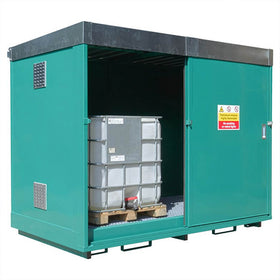BP accused of fostering a "culture of corporate recklessness"
The civil case to determine the role that BP, Transocean and Halliburton played in the 2010 Deepwater Horizon oil spill began this week.
Proceedings on first day saw the lawyer representing the plaintiffs’ steering committee allege that BP had put “production over protection, profits over safety”. Mike Underhill, the representative from the Department of Justice was equally scathing of BP, claiming that the disaster was a result of their “culture of corporate recklessness”. In contrast, BP chief executive Bob Dudley has maintained his belief that the oil conglomerates actions had not been grossly negligent.
At the end of 2012 BP settled the criminal case out of court by agreeing to pay £2.9bn in criminal fines alongside the £5.1bn paid out to businesses and people impacted by the spill.
The stakes for the civil trial are even higher; if BP is found to have been grossly negligent then they could face a maximum fine of £11.6bn, and a verdict of simple negligence would still carry a minimum penalty of nearly £3bn.
The first stage of the proceedings will focus on the cause of the disaster and who is ultimately responsible for the fatal explosion that resulted in the deaths of 11 men and generated the worst offshore oil spill in US history.
Transocean, the company that owns and leased the rig to BP, were also singled out for criticism. Jim Roy, representing the plaintiffs’, highlighted the inexperience of Transocean’s safety official and the cursory spill response training he had received stating that, “Amazingly, he had never been aboard Deepwater Horizon”.
US contractors Halliburton are also facing allegations of negligence over their role in the disaster. They were contracted to cement and monitor the Macondo well that exploded and spewed out approximately 4 million barrels of oil, a well that Jim Roy claimed had been “poorly designed, not properly tested and was unstable”.
BP has been quick to apportion blame to Transocean and Halliburton for their part in the disaster, but on the second day of the trial one of the plaintiffs’ expert witnesses, Robert Bea, a former safety expert for BP, testified that the disaster had been an example of a “classic failure of management and leadership in BP”.
BP had tried to block Bea’s testimony on the grounds that he had been “spoon-fed” evidence and ignored the “safety cultures of the other parties”. Bea insisted in court that BP had the financial resources to “put into place a process safety system that could have prevented the Macondo disaster”.
It will be the responsibility of Judge Carl Barbier to assess the evidence and to ascertain who was at fault, and whether or not it was due to simple or gross negligence.
Once this has been determined the trial will enter a second stage in the autumn to calculate exactly how much oil leaked into the Gulf, and what reparations the culpable party will have to pay. However, industry experts have suggested that BP may try to settle the case out of court to avoid a potential year long court battle and the far reaching financial implications that a fine under the Clean Water Act would have.
www.yellowshield.co.uk



